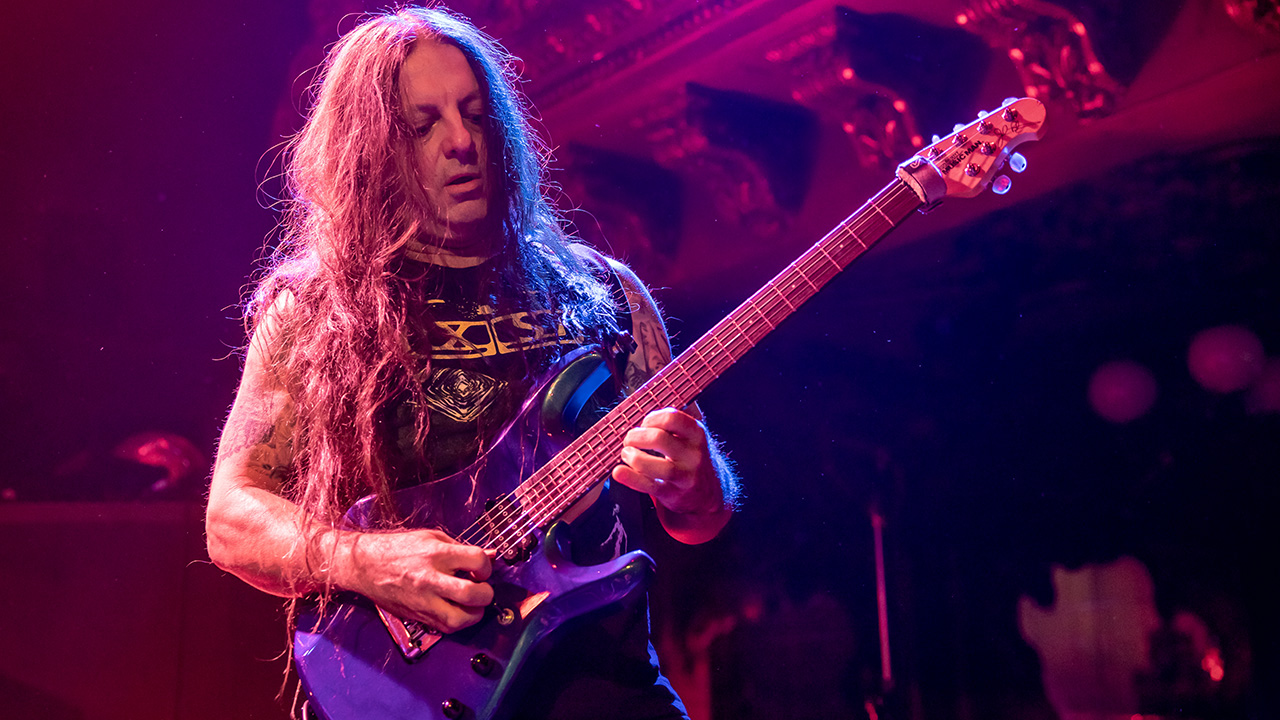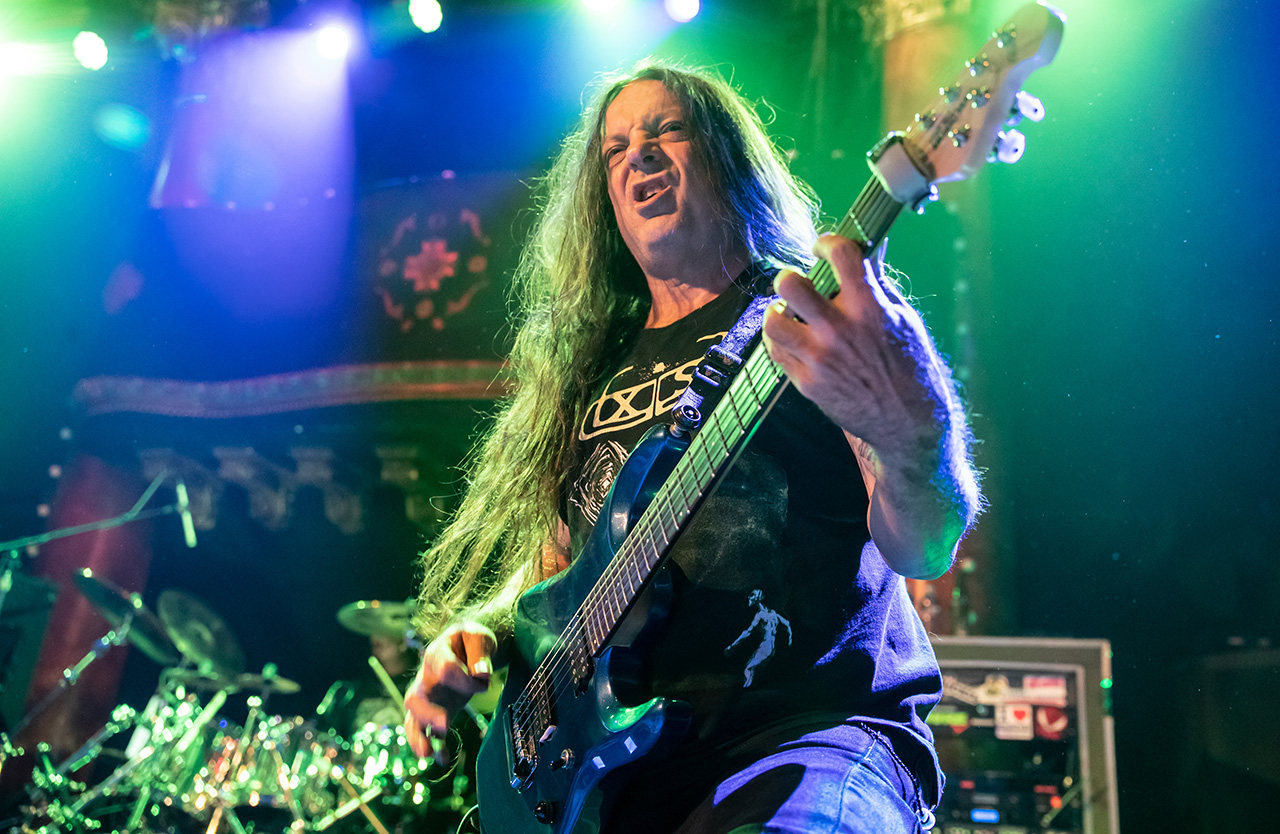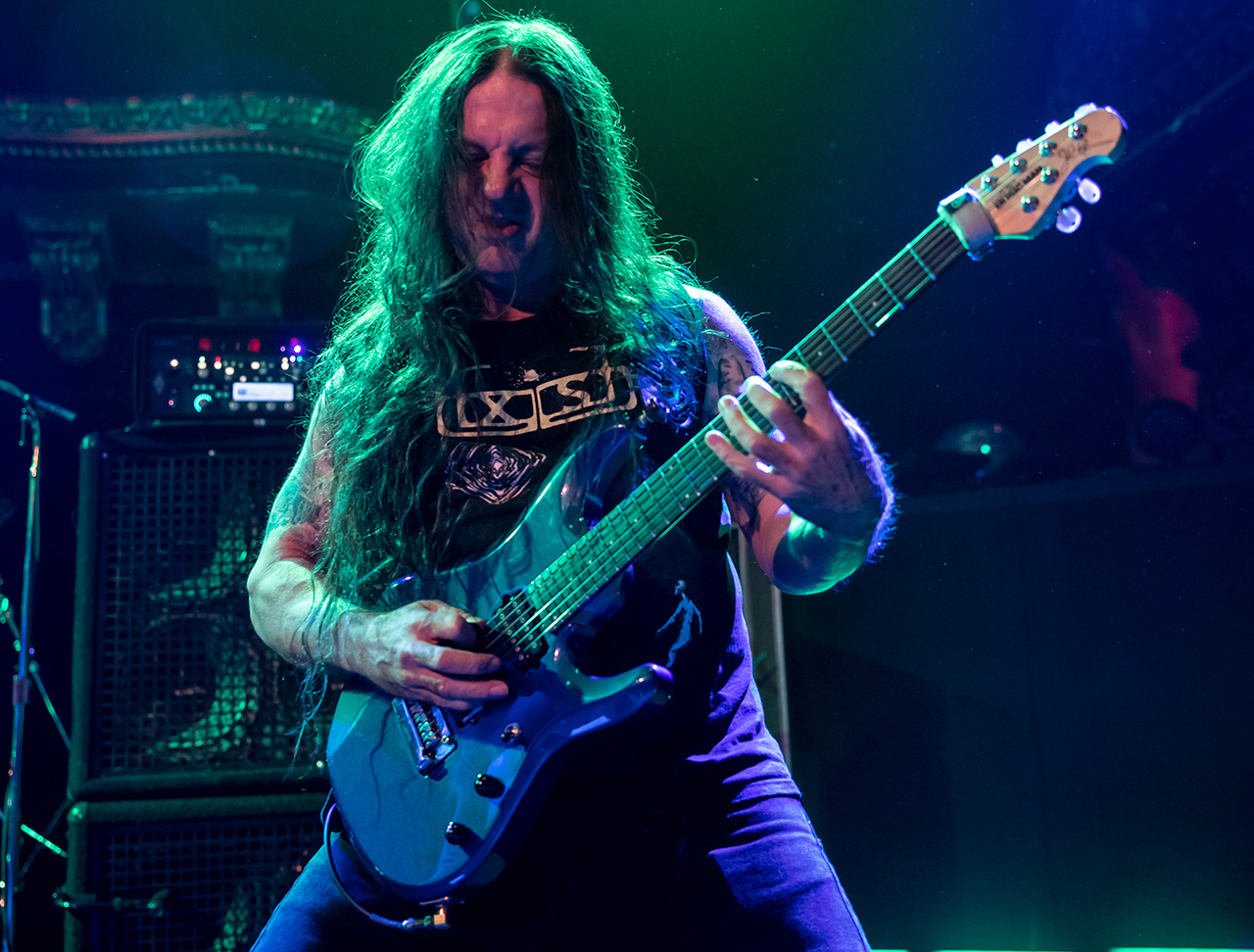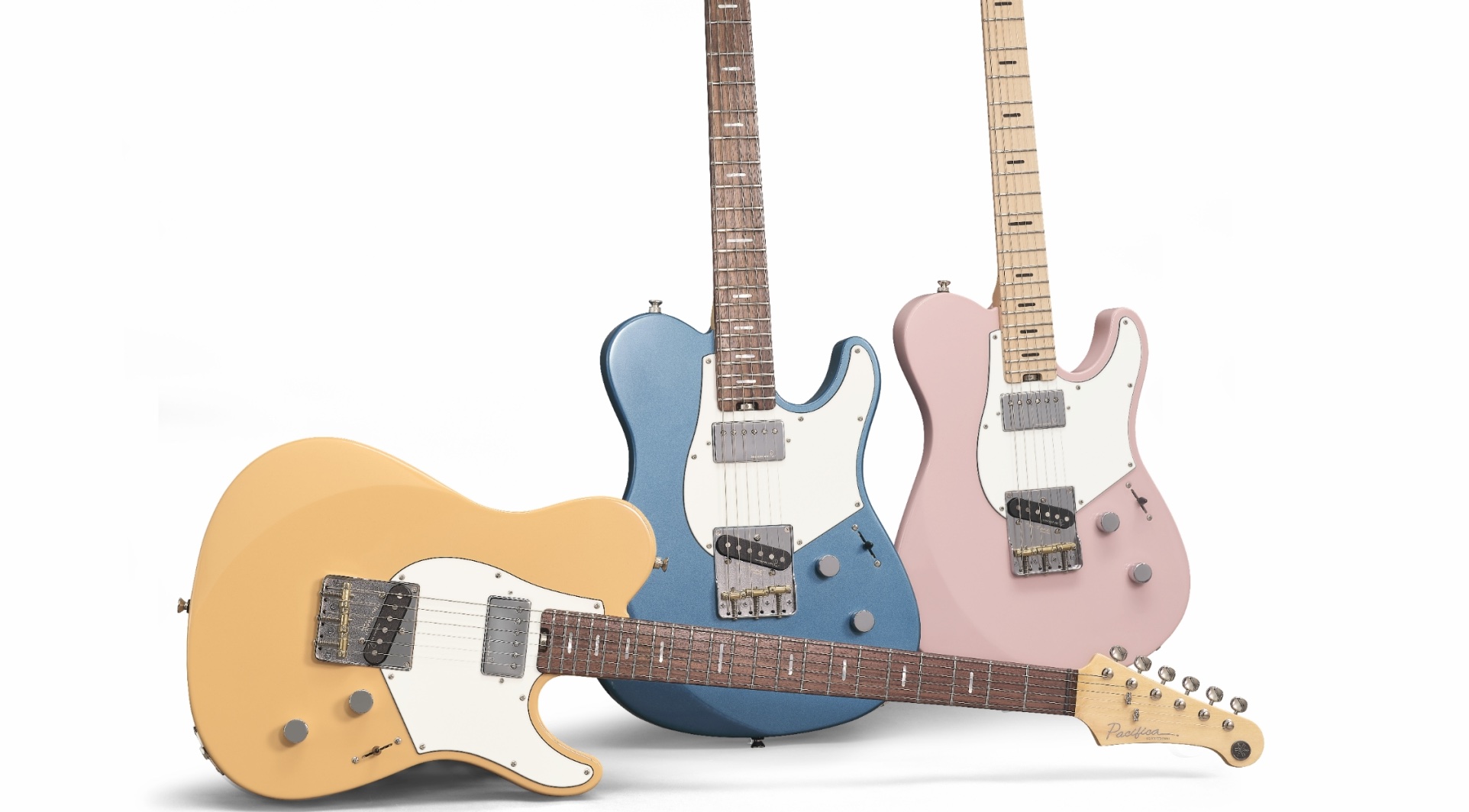“I went to Chuck Schuldiner’s house and auditioned. I’m sure I played some of it wrong, but I guess it was close enough!” How Bobby Koelble brought his jazz chops to Death – and made one of the greatest metal albums of all time
He left his mark on 1995 album Symbolic, and while he moved on to jazz, he still keeps metal sensibilities within his playing

Bobby Koelble joined Chuck Schuldiner’s pioneering metal outfit Death in 1994, leading to Symbolic, an album some call “close to flawless.” But metal wasn’t his only passion – he strapped on a Kramer Pacer as a kid, then later studied jazz at Berklee.
“I’m somehow the product of all those elements, although it honestly wasn’t too focused or intentional,” he says.
After college he got the call to join Death. “I had heard the earlier stuff and liked it, but the album that really knocked me out was Human. I’d never heard metal played that way before. The songs were killing – but of course, his amazing supporting cast had a lot to do with it.”
Schuldiner presented Koelble with a fully-written album, which turned out as 1995’s Symbolic. “He gave me a cassette with the parts that I’d be soloing on so I could figure out what I wanted to do. He let me do whatever I wanted, and fortunately, he liked what I did! Chuck played all of the rhythm parts on the album.”
While the vibe was sometimes fun on tour, label pressure weighed on Schuldiner, who shut Death down in 1996. After that he tabbed Koelble for his post-Death band, Control Denied – but it wasn’t to be.
Since then he’s leaned into jazz, forming the Jazz Professors and teaching students of the genre. “I was given audition offers for a couple of other bands you may have heard of, but it never ended up happening. Jazz has been a lifelong pursuit for me. It ain’t easy!”
What inspired you to pick up the guitar?
All the latest guitar news, interviews, lessons, reviews, deals and more, direct to your inbox!
“My first instrument was actually the organ; I took lessons for six years starting at age seven. I eventually realized there was no organ in Black Sabbath, and it was time to change instruments!”
Do you remember your first guitar?
“It was a Lotus Strat copy that we bought at the Keller Music store where I took organ lessons. I traded it for my first real guitar, a Kramer Pacer, in 1984. I eventually had the EMG 81/85 pairing installed in it. Unfortunately it was stolen in from an apartment in Boston in 1990.”
How did growing up in Florida impact you as a young player?
“Metal was still a fledgling movement there in the mid-80s. A lot of the bands we were into weren’t coming down here. When I moved to Boston in 1986, I finally started getting to see bands like Slayer, Megadeth and Voivod, which had a huge impact on me.”
By that point, did you know what kind of player you wanted to be and what sorts of sounds you were chasing?
“I’ve always had musical ADD. I was into rock and metal when I started playing, but I also started classical guitar in high school. Then I heard fusion and was completely fascinated by that – Al, Paco, John, and Holdsworth were my heroes. They led me towards Berklee, where I fell in love with jazz.”
How did you move from Berklee to being a working musician?
“It didn’t happen overnight. I worked a job painting houses for almost two years until I’d made enough contacts to start picking up gigs. I met a lot of people by going to jam sessions, which is what I always recommend that young musicians do.”
What led to your joining Death?
“Chuck and I had met when we were in high school, although we went to different schools. We already knew about each other when he was looking for someone to come in for Symbolic.
“He got my number from a mutual friend who worked at a music store where we both shopped. He recalled hanging out when we were younger.

“I went to his house and auditioned with three tunes off of Human and Individual Thought Patterns – just Chuck, [drummer] Gene Hoglan and me. I’m sure I played some of it wrong, but I guess it was close enough! He called me over about a week later and told me I had the gig.”
What were Chuck's expectations of you as a player, and what were your observations of him as a player?
“Chuck really had no expectations of me as a player other than to play the tunes correctly. He allowed me to do whatever I wanted for my solo spots. I’ve always said that’s what great band leaders do – hire people whose styles you like and let them do their thing.
For the most part he was an easy-going guy on the road… But some conflicts started to rear their ugly heads
“Chuck developed a unique approach to playing and phrasing. He started out influenced by the early thrash players, but you could really hear his technique and melodic sensibilities evolve over the years.”
What was your rig like when you joined Death?
“I was playing through a Marshall JCM800 with a Boss overdrive pedal. I also had an ART multi-effects unit that I used for Lack of Comprehension, Empty Words and Crystal Mountain. I was playing a Washburn EC-29 guitar; he graciously reached out to them and got me another one for a backup.”
What’s the most memorable guitar moment from Symbolic?
“I spent one afternoon doing the solos – we drove to Morrissound in Tampa, Florida, in the morning, and came back that night. Suffocation was there recording Pierced From Within; it was cool to meet and hang out with those guys. I’m proud of all of it, but the solo on Perennial Quest is probably my favorite.”
It’s been said that Symbolic and its guitar work are “close to flawless.” Fair enough for you?
“Chuck definitely did an amazing job. He was an outstanding rhythm guitar player and came up with some timeless riffs and solos. A good deal of credit should also go to producer Jim Morris for the great overall sound quality.”
What was your touring rig like with Death?
“We both used Marshall Valvestate 8100 heads live and 4x12 Celestion cabinets; I can’t remember the specific speakers. My main goal was to lock in with Chuck as tightly as possible. It was a fun challenge trying to reproduce the vibe of the earlier guitarists.

“I’d stay close to the recordings for some of it and kind of do my own thing in other places – but I always tried to maintain the original vibe.”
How was touring with Chuck?
“For the most part he was an easy-going guy on the road, and we had a lot of fun. But there were some conflicts between him and the record company, which started to rear their ugly heads towards the end of it all.”
Death coming to an end was devastating for me, but I understood where he was coming from
What led to Death being disbanded?
“I think Chuck was tired of singing and wanted to work with a vocalist so he could concentrate on guitar playing and composition, which is what manifested in Control Denied. But the break from Roadrunner wasn’t pretty, and it all added up to him just wanting to move on.
“Of course, Death coming to an end was devastating for me, but I understood where he was coming from. He did call and ask about me joining Control Denied, but my life was heading in a different direction, so it never happened.”
Since then, you’ve had two top-20 jazz albums with the Jazz Professors. Are there any overlaps between playing metal and jazz?
“I’ve been very fortunate to have taught jazz guitar at the University of Central Florida since 2007, as well as at Rollins College since 1998. The Jazz Professors are the performing faculty at UCF; it’s a great learning experience to work and play with such wonderful musicians.
“Jazz and metal can be very intense in different ways, though the vocabularies of the music are obviously very different. I still try to apply what I’ve learned from the jazz language to playing heavy music, and do my best to put my own twist on it.”
What’s next for you?
“I’ve been involved with a long-distance metal project called Lie of Eris with some friends of mine in Quebec, and an Orlando area vocalist. We recently released a lyric video of our song Ex Oblivione, which features Snake and Chewy from Voivod.
“I’m pretty busy freelancing in the Orlando area, but I’m hoping to put out a jazz quartet album sometime this year. Hopefully Death to All will be doing a bit of touring later in the year, to help keep the spirit of Chuck and his music alive.”
- Follow Koelble on Instagram for updates.
Andrew Daly is an iced-coffee-addicted, oddball Telecaster-playing, alfredo pasta-loving journalist from Long Island, NY, who, in addition to being a contributing writer for Guitar World, scribes for Bass Player, Guitar Player, Guitarist, and MusicRadar. Andrew has interviewed favorites like Ace Frehley, Johnny Marr, Vito Bratta, Bruce Kulick, Joe Perry, Brad Whitford, Tom Morello, Rich Robinson, and Paul Stanley, while his all-time favorite (rhythm player), Keith Richards, continues to elude him.
You must confirm your public display name before commenting
Please logout and then login again, you will then be prompted to enter your display name.




